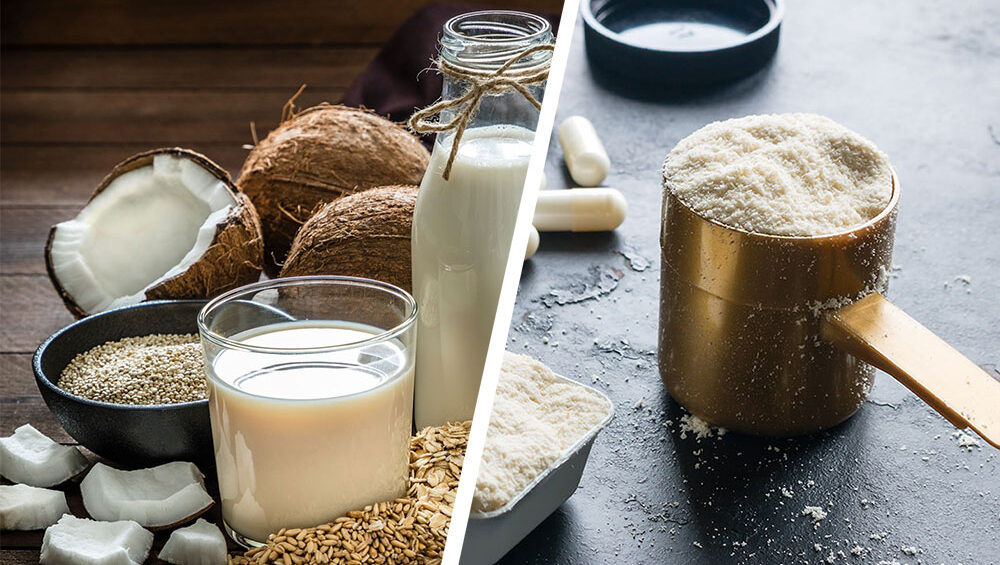Natural Protein vs Protein Supplements – Which One Is Better?
Who doesn’t want to look healthy and fit? Well, nobody! And this is the reason why we need to concentrate on our diet as much as on exercise. In this situation, one question always arises, what kind of food help you to build muscles – natural proteins or protein supplements? So, let’s start to know some basics about protein –
What is protein?
Protein is an essential macronutrient for proper cell growth and to keep your body functioning well. It is composed of amino acids that break down in the body and fuel the muscles to build it up.
Why do we need proteins?
Whether you are a gym-freak or not, you need protein for regular body functioning. It’s a vital nutrient required for building, maintaining, and repairing tissues, cells, and organs throughout the body. They also produce hormones, enzymes, and hemoglobin. Protein helps to transport the substances throughout the body and also helps to fight against infections.
How much protein intake do we require daily?
The daily requirement of protein may vary according to the age, weight, gender, and level of physical activity. The daily requirement of protein ranges between 46-63 grams for adults and 65 grams for pregnant and lactating females.
Benefits of protein intake
- Enhance your immune system
- Helps in the growth of muscles and bones
- Fight against various infections
- Improve your mood
- Maintain a healthy weight
Good natural sources of protein
There are various sources from which we get natural proteins. Mostly natural proteins are found in animal foods such as poultry food, and seafood and are also present in plant-based foods such as lentils, nuts, etc.
1: Poultry food
Boneless chicken and egg whites are the best sources of protein. Chicken breast is a common food in an athlete’s diet as it contains low fat and high proteins. Egg whites are an excellent source of essential amino acid as well as protein.
2: Seafood
Most type of seafood is high in proteins and low in saturated fat. Fishes such as salmon, trout are the best source of proteins and omega-3 fatty acids.
3: Dairy products
Milk and milk products such as cheese, yogurts are rich in proteins. It helps to get your bones, teeth, and muscles strong.
4: Nuts and seeds
Almost all nuts and seeds are rich in proteins as well as dietary fibers. They also contain good fat that helps to build your immunity strong.
5: Tofu and soy products
Tofu and soy products are great alternatives for meat as they are high in proteins and low in fats.
Good protein supplements
Protein supplements such as protein powders and bars provide you with instant protein. They are refined, processed forms of protein, just like vitamin supplements.
1: Whey powder
Whey protein powder is a high-quality dairy protein, known to be very effective for building muscle mass, and may help with regulating weight. When your oral intake is less, whey powder could help you to maintain the normal levels of protein.
2: Soy protein
Soybeans are an amazing plant-based source protein that provides all essential amino acids. This type of protein boosts your immune system and promotes bone health.
3: Pea protein
It is a popular source of protein for vegetarians and vegan people. It is made from a split, yellow pea that contains essential amino acids.
Which is the best option – natural proteins vs protein supplements?
Protein in any form – natural or artificial, is essential to carry out normal body functions. Natural source of proteins provides all required carbohydrates, vitamins, and minerals, but they may not provide all essential amino acids. Natural protein sources are mostly animal-based, and might not be a suitable option for vegetarian and vegan people. They contain no preservatives or artificial colours. Some natural protein sources are expensive and require time to prepare.
Protein powders or protein bars are the artificial sources of protein. They provide all essential amino acids in the required quantity. In liquid form such as juices, protein is easy to absorb and digest. These protein supplements are super-convenient and instant to consume. However, protein bars and powders contain artificial colours and preservatives, which can be harmful to the body.
Though there is more convenience in using protein supplementation like protein shakes or protein bars, it is always best to use natural sources. Consume natural food items as much as you can, however, you can also use supplements to fill in the gaps, only under the supervision of a nutritionist.



